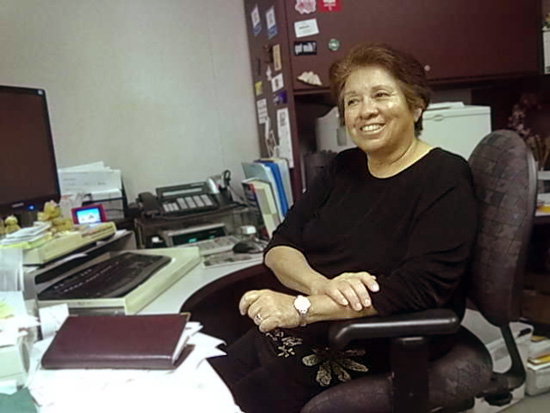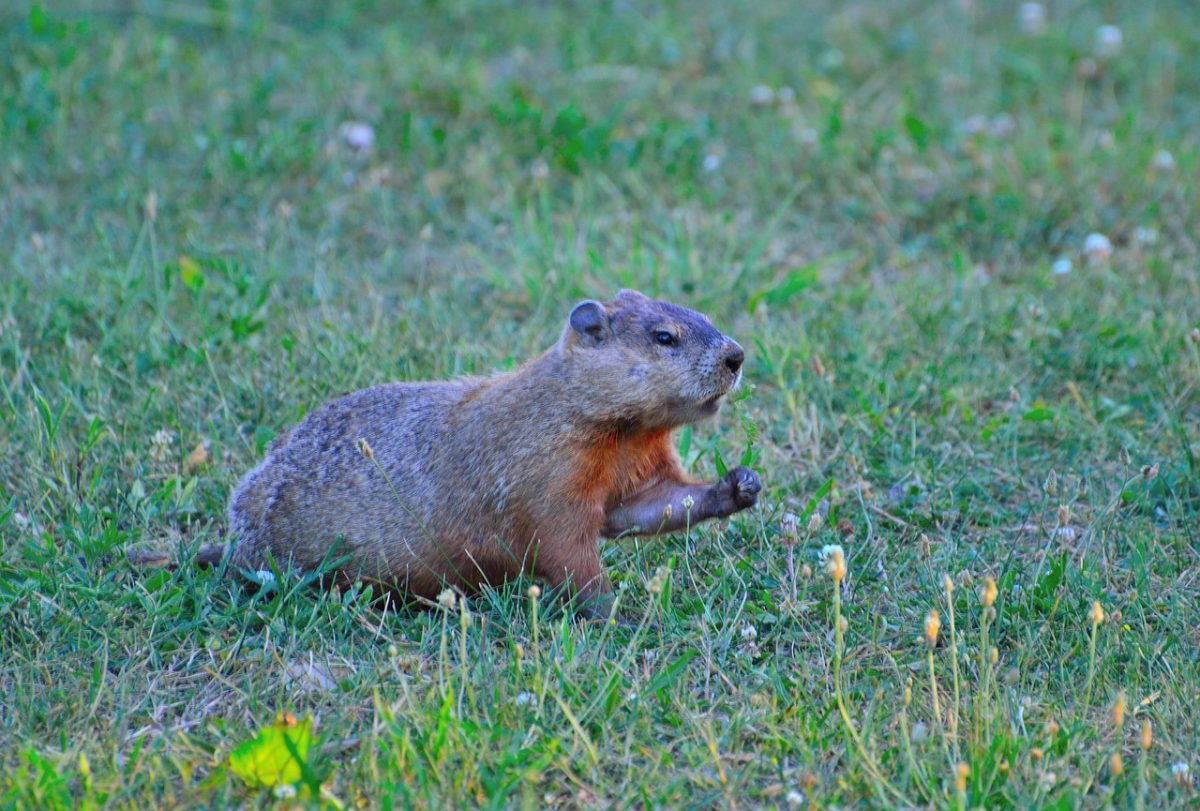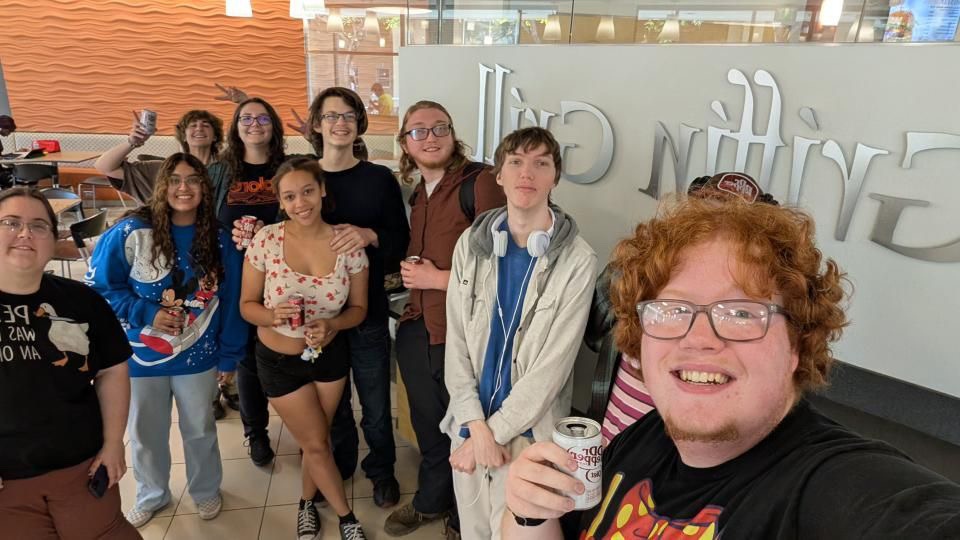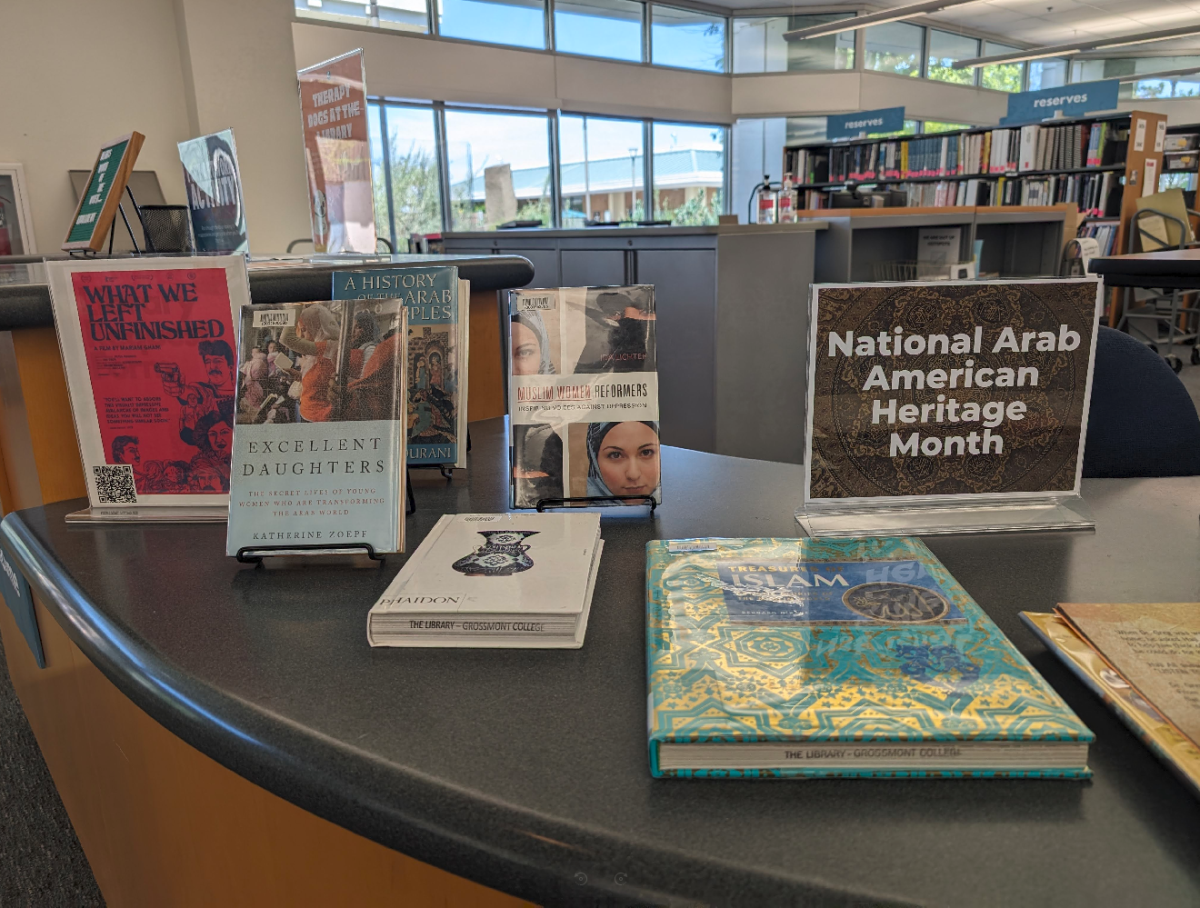
GROSSMONT COLLEGE–From the advent and disappearance of Friday-night dances to dogs on campus, from high heels and miniskirts to student protests against U.S. involvement in the Vietnam Conflict, Alba Orr has been a constant at Grossmont College.
Orr arrived at Grossmont on September 1st, 1966, as both a student and a part-time employee for the guidance department (under Dr. Charlie Collins). She currently is supervisor of Business Communications Services.
To say that she has seen many changes – some subtle, others immense – would be accurate.
“There have been a lot of changes. What I see now, in many ways, is totally, totally different. Some changes for the better, some – not so much,” said the Tijuana-born Orr.
She recalled the etiquette that was standard when first she came to the campus. “You would never say, ‘hi Joe’ – it was always ‘Mr.,’ ‘Mrs.,’ of ‘Dr.’
“We also didn’t mingle – classified and certificated were separated – they had their things; we had ours. They had parties; were not invited to their parties. It’s changed a lot.
“On our desks, we all had our names, with either ‘Mr.’ or ‘Miss’ or ‘Mrs.’ That has changed through the years; I do not really see that anymore.”
She spoke for a time of the shift, throughout the decades, towards less modesty-of-dress at school. “You did not see dress-codes like you do now: all the gentlemen wore ties and coats – usually suits. Women never wore pants or open-toed shoes – they wore nice dresses, not elegant but nice and with .”
Of classroom etiquette, Orr said the following: “It was very professional in the classroom. You never spoke out of turn with the instructor it was always ‘Mr.,’ ‘Mrs.,’ or ‘Dr.’ The relationship between teachers and students was very formal. very quiet. You never ate in the classroom.”
Orr recalled also some of the structural woes of Grossmont’s past. “There was no grass…so you could go outside and see the heat rising from the dirt. And when it rained, mud and water just ran all over the parking-lots.”
When asked of the school’s gender- and ethnic-demographics during her early years at Grossmont, Orr evenly recalled, “you know, I think it was mostly Anglo – mostly from the local high schools: Grossmont High School and El Cajon .
“I don’t really remember seeing a lot of Latinos or African-Americans. But I don’t think I ever looked at it that way – ‘how come they are not here?’ – because I graduated from Crawford in ’66, and back then there was only a handful of Latinos. I don’t think we had any African Americans. Everyone was Anglo. I was kind of used to that.”
To her, the breakdown of men to women seemed “about even.” And when asked about the manner in which male and female students interrelated, Orr said first that she herself stuck to her studies, then added that, in the classroom at least, everyone was very professional: “There were no four-letter-words, I can tell you that.”
Throughout Orr’s more than four decades at Grossmont, many historic events occurred. One example is the Vietnam Conflict, of which Orr talked briefly, mentioning the protests that happened on campus in the 1960s and 1970s.
She also recalled another 1970s phenomenon. “We had a period in the 70’s – what were they calling it? – where some would take off their clothes and run around to our classrooms…” She paused. “Streaking.”
“There was a thing where it was announced that ‘there is going to be streaking during college hour, so everybody and their brother would go out in the quad; then down came — men and women — from the , down the steps, across the quad and into the Student Center.”
She could not recall anyone ever having been arrested — neither for streaking nor for protesting the Vietnam Conflict.
Women began to get more involved in governance at school during the 1970s, in Orr’s recollection. Meanwhile, the Hippie Movement significantly affected students’ preferences for clothes and hairdos, whereby “even the counselors,” Orr recalled, “were running around in shorts.”
Also at one point in the 70’s, according to Orr, dogs were allowed on campus. “There were dogs running around everywhere! At that time, I worked in the counseling-center and you were almost tripping because there were dogs all over the place!”
Then came high-heels and miniskirts. Orr recalled that those served as quite a distraction for many students.
Throughout the changing fashion trends, Orr noted,” “Grossmont has never had a dress-code.”
“Things really changed when Dr. Richard Sanchez became president of the school (the first Latino to hold that position). He wanted to really get the staff together; so we started having a barbecue at the end of the year where everyone was invited. It was very informal.”
At the end of her interview, Alba Orr stated unequivocally that, even after more than four decades of work at Grossmont, she very much enjoys her job, every day.
*
Lindquist is Managing Editor of the GC Summit; email him at [email protected]







